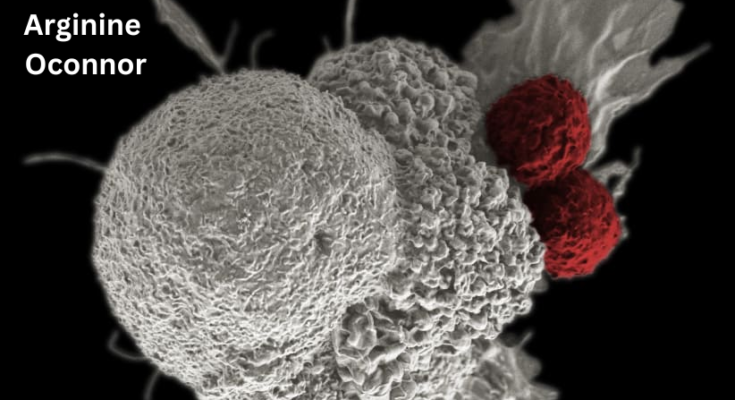In recent years, the realm of health and wellness has come to appreciate the significant role of amino acids in human physiology, and among these compounds, arginine stands out due to its versatile applications. Within this context, one prominent figure is Arginine O’Connor, a concept that intertwines the biochemical properties of arginine with the insights and discoveries made by researcher or expert O’Connor. This article delves into the implications and relevance of arginine O’Connor, shedding light on how it connects with various aspects of health and nutrition.
Understanding Arginine: The Basics
Before diving into Arginine O’Connor, it’s vital to understand what arginine is. Arginine, or L-arginine, is a conditionally essential amino acid. This means that while the body can produce it, there are times—particularly during periods of stress, illness, or rapid growth—when additional amounts may be beneficial. Arginine plays a crucial role in numerous biological functions, including protein synthesis, hormone secretion, and overall immune function.
The Role of Arginine in the Body
Arginine contributes to various physiological processes:
- Nitric Oxide Production: One of the most significant roles of arginine is as a precursor for nitric oxide (NO), a molecule that helps widen blood vessels and enhance blood flow. This function is essential for cardiovascular health, and it underlines arginine’s relevance in managing conditions like hypertension.
- Wound Healing: Arginine is vital for collagen synthesis, aiding in tissue repair and healing. This property makes it particularly important for athletes or individuals recovering from injuries.
- Immune Function: Arginine also supports the immune system by promoting the activity of T-cells, which are crucial for immune defense.
- Hormonal Regulation: It helps in the secretion of several hormones, including insulin and growth hormone, influencing metabolism and energy levels.
Arginine O’Connor: Connecting the Dots
When discussing Arginine O’Connor, the context often leads back to the applications and implications of arginine in various health scenarios, particularly those highlighted by researcher O’Connor. Studies and publications relating to this term often cover the effectiveness of arginine in therapeutic areas, including cardiovascular health, athletic performance, and metabolic disorders.
Arginine in Cardiovascular Health
Research has shown that arginine supplementation can aid in cardiovascular health by enhancing nitric oxide levels. This effect can lead to improved endothelial function, reduced arterial stiffness, and better overall blood circulation. O’Connor’s work may include insights into clinical trials that analyze how arginine, especially in specific formulations, can positively impact individuals with cardiovascular diseases, including hypertension and peripheral arterial disease.
Enhancing Athletic Performance
For athletes, arginine can be seen as a potential ergogenic aid. The increased nitric oxide production from arginine leads to improved blood flow, which may enhance nutrient delivery to muscles during exercise. O’Connor’s discussions on this topic could explore the ramifications of arginine supplementation on athletic endurance, recovery times, and overall performance in competitive sports.
Metabolic Disorders and Diabetes Management
Another area of interest in the realm of arginine O’Connor is its role in managing metabolic disorders, particularly type 2 diabetes. Arginine’s insulin-like effects and its capacity to improve blood flow can help regulate blood sugar levels and reduce complications associated with diabetes. O’Connor’s research may highlight how arginine could serve as an adjunct therapy in diabetes management.
The Formulations and Dosage Considerations
When considering arginine supplementation, understanding the various forms available and their respective dosages is crucial. Arginine supplements come in various formulations, including L-arginine, arginine alpha-ketoglutarate, and arginine hydrochloride. The choice of formulation may depend on the specific health goal, as each form can have different bioavailability and effects.
Recommended Dosages
While recommended dosages can vary widely depending on the intended use, common supplements range from 3 to 6 grams per day. However, people should consult with healthcare professionals before starting supplementation, particularly individuals with pre-existing health conditions or those taking medications.
Potential Side Effects and Risks
Although arginine is generally safe for most individuals when taken in appropriate amounts, it’s essential to be aware of potential side effects. These may include gastrointestinal discomfort, diarrhea, and changes in blood sugar levels, particularly for individuals with diabetes. O’Connor’s work could encompass essential safety reviews, stress testing arginine’s applications, and exploring the risks versus benefits of supplementation.
Conclusion: The Promise of Arginine O’Connor
In summary, Arginine O’Connor brings to the forefront the multifaceted benefits of arginine, illuminated through rigorous research and applications in health and fitness. As more studies emerge, the continued exploration of arginine’s capabilities, particularly concerning cardiovascular health, athletic performance, and metabolic disorders, stands to provide valuable insights for both researchers and individuals looking to optimize their health.
As the body of knowledge surrounding arginine expands, it is worth following developments in this area, particularly the contributions and findings related to Arginine O’Connor. Those interested in leveraging arginine for health improvements should consider consulting with healthcare providers and delving deeper into the valuable research underlying this amino acid’s potential benefits. Understanding the complexities and correlative advantages of arginine O’Connor can aid individuals in making informed decisions about their health and supplementation needs.

